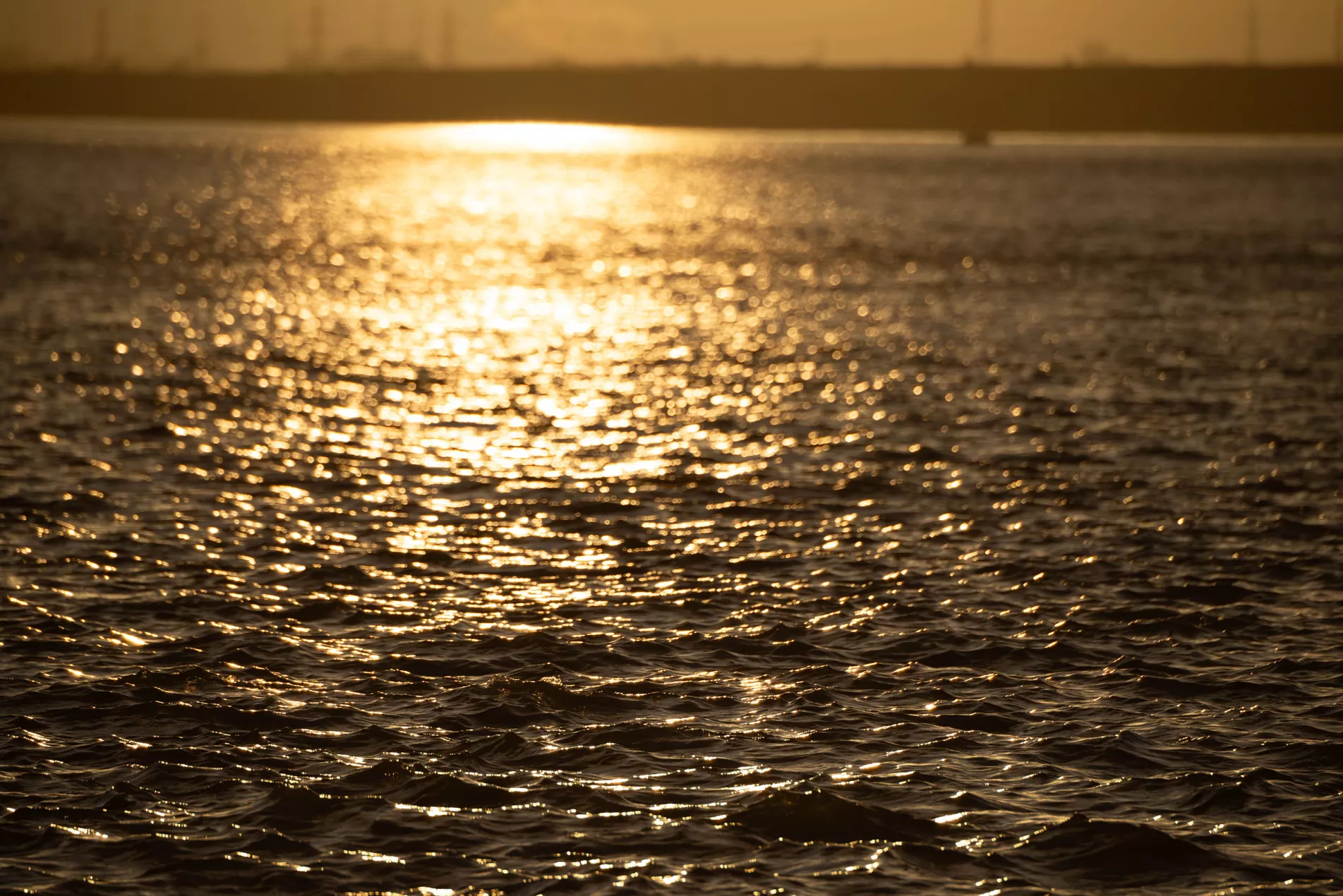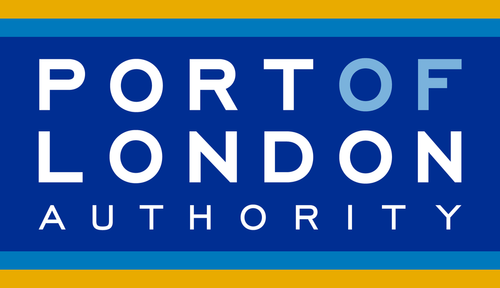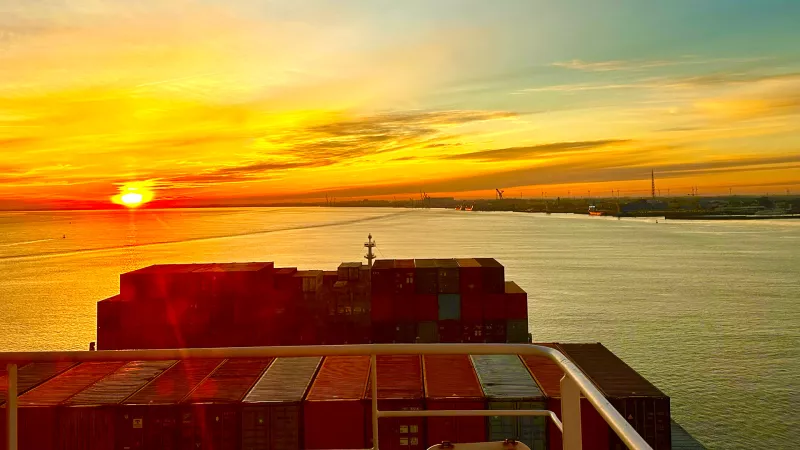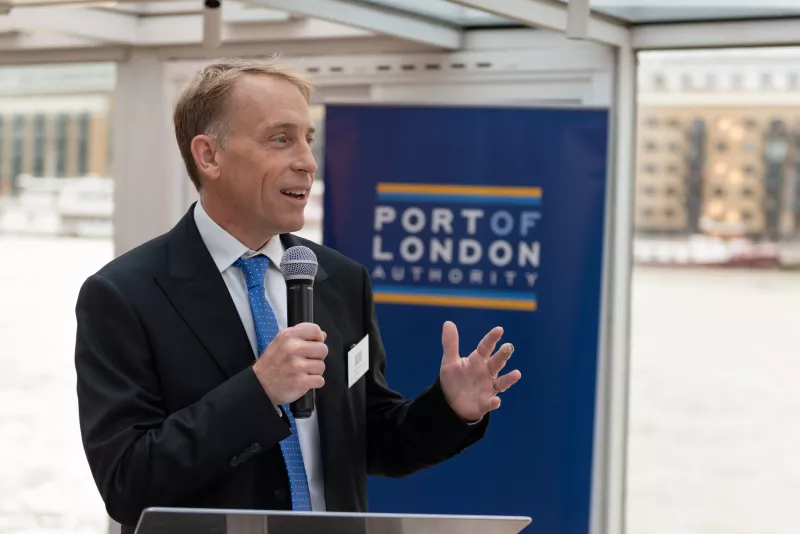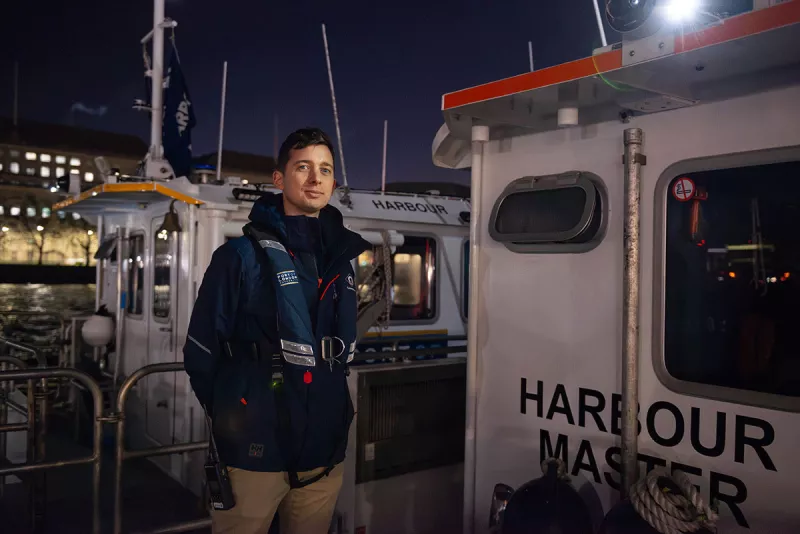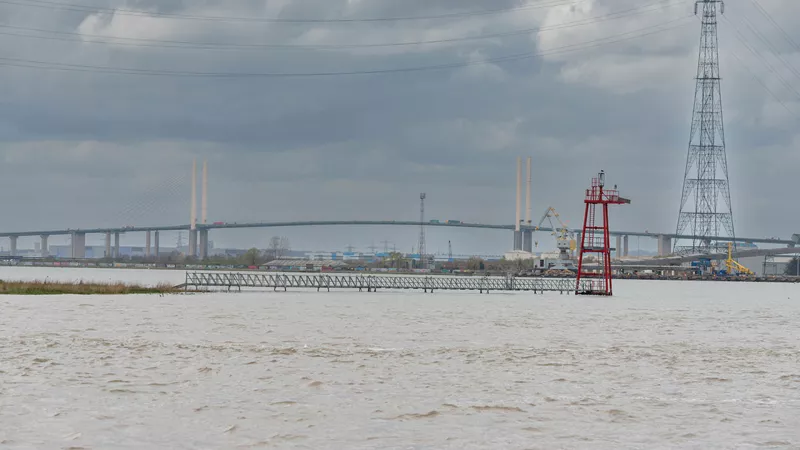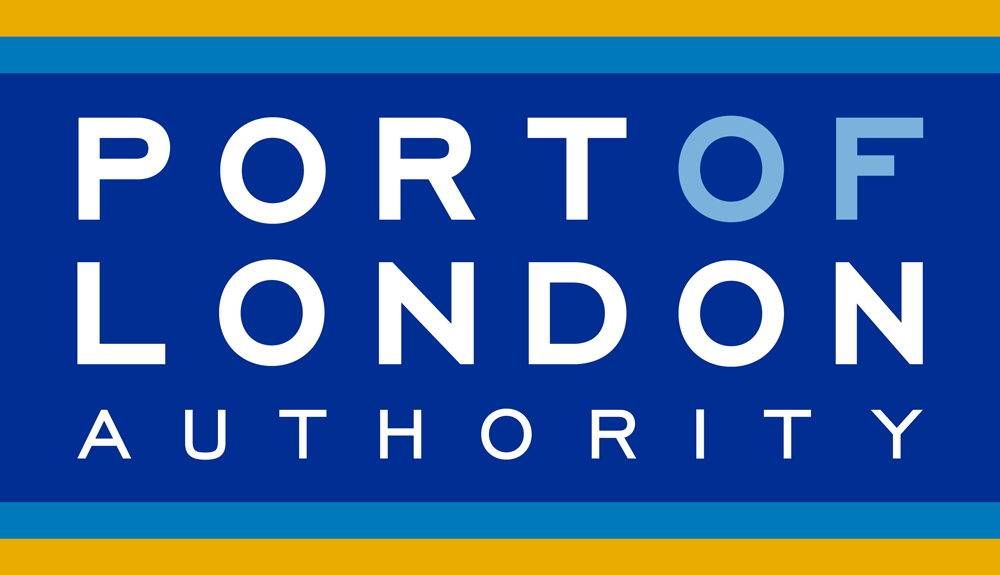Live Tides
NOTICES TO MARINERS
Charts & Surveys
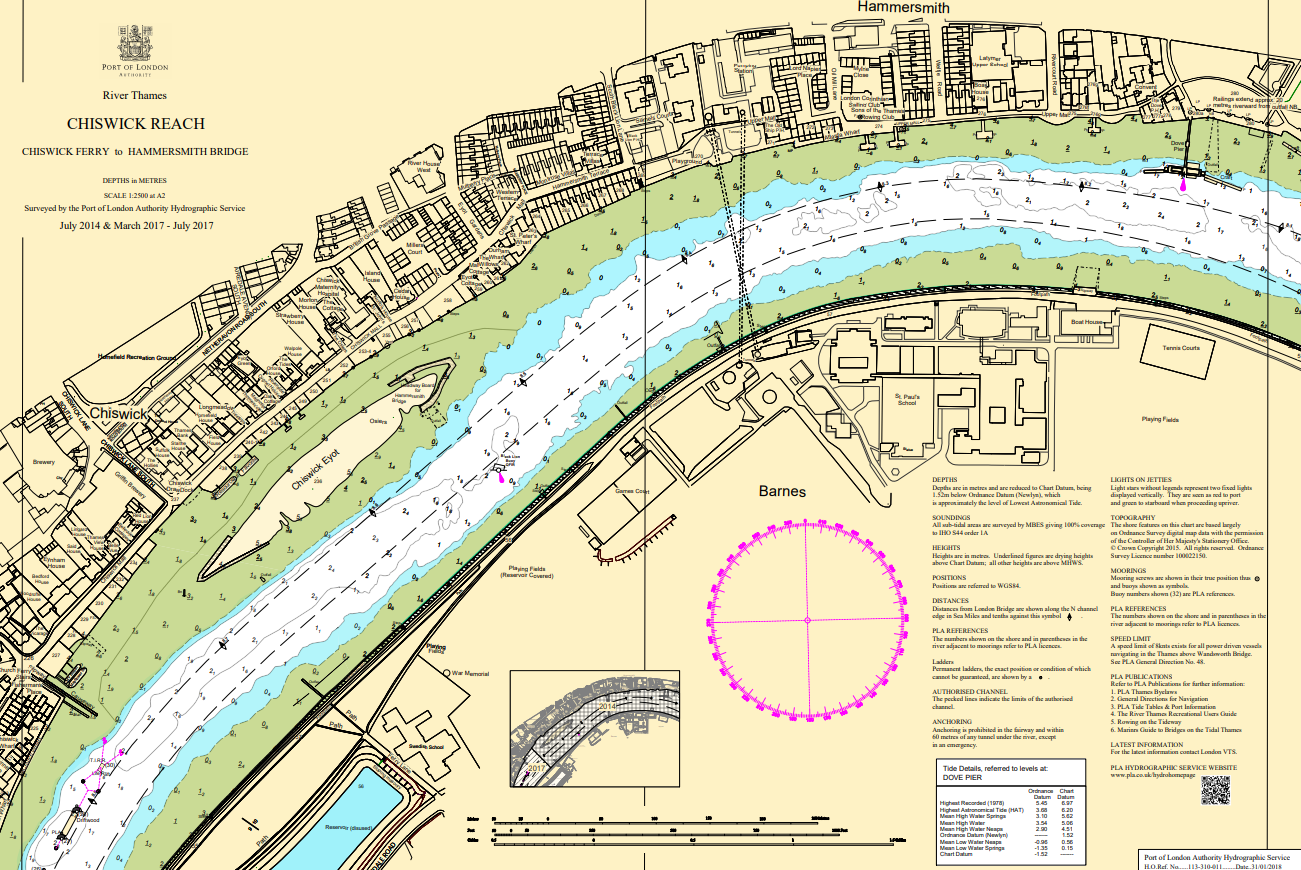
Incident reporting
Life-threatening emergencies on the river:
Call 999 and ask for the Coastguard
For near miss, safety observations and incident reporting click below
Merchant Navy Medal: Recognition of PLA Pilot Hywel Pugh
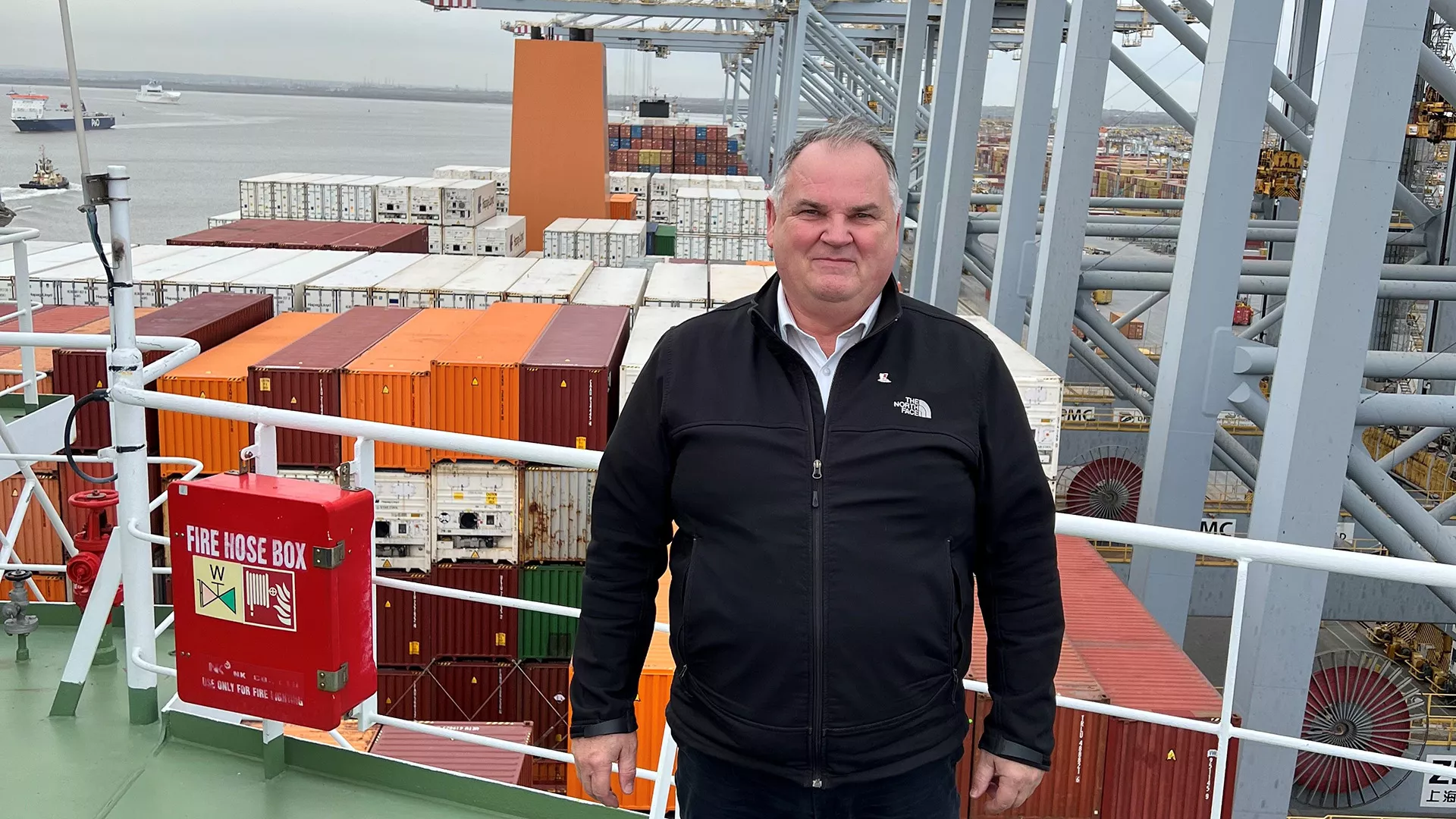
We are proud to celebrate Hywel Pugh, who is one of just twelve recipients of the prestigious Merchant Navy Medal. The medal, one of the highest awards in the UK maritime sector, is presented each Merchant Navy Day to recognise individuals who go above and beyond in their service to the industry.
Hywel’s award highlights his outstanding contribution to training and supporting pilots on the Thames, as well as his tireless work across the sector to improve safety standards, particularly in relation to pilot ladders.
We sat down with him to hear more about his career journey, his passion for training, and his commitment to safety.
Career Journey
Q: Can you tell us a little about your career in the maritime industry and then how you came to join the PLA?
I joined Houlder Brothers, a British Shipping company, at the age of 17 in 1978. I did a four-year Deck Cadetship, sailing on various ships around the world. On finishing my Cadetship, work was difficult to find as the British shipping industry was going through difficult times. Eventually, in the spring of 1983, I found employment with Crescent Shipping, a British company based out of Rochester, operating small coasters, known fondly as the "Turkish Navy" as they had a red crescent on the funnel.
In early 1989 I moved into the Offshore Industry in the North Sea, firstly onto Anchor/Platform Supply vessels, then onto a Semi-submersible Flotel, where I served as Master and Offshore Installation Manager. It was from here that I joined the PLA as a Trainee Pilot in September 1999.
Q: What have been some of the highlights or defining moments of your career so far?
Piloting the HMM Algeciras, a Megmax ULCS and at the time the largest container ship in the world, on her maiden voyage into London Gateway in the summer of 2020. A great deal of planning had gone into this visit and all of this under lockdown rules, so it was challenging for all.
Q: Who or what inspired you to pursue this career path?
Since my coasting days with Crescent Shipping, piloting always appealed to me, but when I went to work offshore in the oil industry it went out of my mind. It wasn’t until 1998, while working in the Mexican oil fields in the Gulf of Mexico and wanting to be closer to home with a young family and a distant family network, that I decided to cast my eyes on some shore jobs.
I still have my Pilotage Exemption Certificate dated 1 October 1988, and one for the Medway. I was very fortunate to work with some great people over the years, and it is difficult to single any one person out.
A nine-to-five job has never appealed to me at all, so becoming a pilot, being home and also getting to play with other people’s toys without the paperwork was, and still is, the best job in the world.
Training and Supporting Pilots
Q: You’ve been recognised for your work in training and supporting pilots - what does that part of your role involve?
I work in the simulator as an operator and trainer with the rest of the Simulator team. With the trainee pilots this is a hands-on role, as you instil in them good working practices and the safety aspects of piloting on the Thames. With pilot progression and ongoing refresher training, I see myself as a facilitator to their progression.
We are always looking to refine the sessions to assist the pilots in reaching their potential. Working in the simulator has made me a better pilot as I have become reflective in how I do my job on the river, then utilise these reflections to assist others. We are all different and sometimes it isn’t a one-team solution, so adaptation and understanding people is a great part of my role as a trainer — giving them tools to assist in completion of the tasks and exercises which they can take out on to the river and use in the day job.
We always use training as a positive motivator and a smiling candidate at the end of the session is the goal. I also look for progress as the session moves from the first to the last exercise.
I am also a member of the Pilotage Training Panel and spend some time doing revision sessions for the trainees during their exam phase — I enjoy doing these sessions.
Q: What do you find most rewarding about mentoring and training new pilots?
The six months training is very tough both physically and mentally and on a successful pass and progression to authorisation, the smile on their faces is priceless. For the progression pilots, the conversation when they qualify as Unrestricted Class 1 Pilots — it gives me great pride that they have achieved their potential.
Q: How do you think pilot training has changed over the years, and what improvements are still needed?
When I started, we didn’t have the in-house simulator or the reviewing system we have now, so it was very much “off you go and see you in six months for the exams.” We have come a long way in changing that with the systems we now have in place.
Technology has moved on and we sometimes struggle to keep up with this, but we must not forget the core skills of piloting such as looking out of the window and using the traditional tools such as radar.
This year we rolled out an in-house Master/Pilot exchange of information course, which has been well received by the pilot body, so we need to continue looking at these soft skill areas.
Safety and Pilot Ladders
Q: Safety is clearly a passion of yours — what first motivated you to focus on improving safety standards?
I came from a background in the oil industry which, post Piper Alpha disaster, had become very focussed on health and safety — so it was natural for me to continue in this mode.
Q: You’ve done extensive work around pilot ladder safety. For those who may not know, why are pilot ladders so critical, and what risks do they pose if not used properly?
Pilot ladders are the way we access the ship when it is underway. Regulation is international and it has taken many years to improve these regulations, which govern how this rope ladder with wooden steps is constructed, maintained and rigged by the ship’s crew.
The latest set of international regulations have just been passed and will come into force in 2028, but we are hoping for early adoption by many flag states. An unsafe ladder can kill you and, unfortunately, we do see fatalities every year.
In October 2020, while climbing the side of a ship, I had one of the side ropes on a ladder part on me, so I was left dangling on one side of the ladder. Fortunately, I survived to tell my tale, others don’t.
Q: Can you tell us about the specific work you’ve done in this area — and how it’s made a difference across the wider industry?
I recently stepped down as Chairman of the UK Marine Pilots Association, and it was through this organisation, CHIRP, and our membership of the International Marine Pilots Association that we helped lobby the industry for changes. It has been a tough battle over the years.
The UKMPA reporting app was a game-changer as it allowed us to gather information nationally. It was adopted by the ports industry and thus gave the industry some teeth to challenge the MCA to support the proposed change. As Chairman, a great deal of time has been spent on this over the years.
Q: What challenges still exist around pilot ladder safety, and what changes would you like to see in the future?
We already empower my colleagues to say no to unsafe arrangements, but some still use them. We need to understand why and work on getting the message to these colleagues that they should be saying no. The Board and ExCo are very supportive when a pilot says no.
The Award
Q: How did you feel when you found out you’d been awarded the Merchant Navy Medal?
Very humbled and honoured that my colleagues and peers had nominated me for the MNM. It did take me a few days to process the nomination.
Q: What does receiving this recognition mean to you personally and professionally?
A great honour and a team award, as I have been privileged to be surrounded by great colleagues and a supportive employer who have allowed me to do the activities outside my core pilotage job.
Q: What message would you like colleagues - especially newer pilots - to take away from your work and this recognition?
If you have a passion then pursue it. For me this was to improve the standards in safety and training in pilotage, and I have been privileged to do that locally and nationally. So get involved locally and nationally, as they are always looking for volunteers.
Marine Pilotage Manager, Dave Newbury said:
“Hywel’s dedication to pilot training and safety has not only shaped the careers of countless pilots on the Thames but has also influenced standards across the wider maritime industry. His Merchant Navy Medal is a fitting recognition of a career devoted to improving safety, sharing knowledge, and supporting others.”
Related content
Discover
